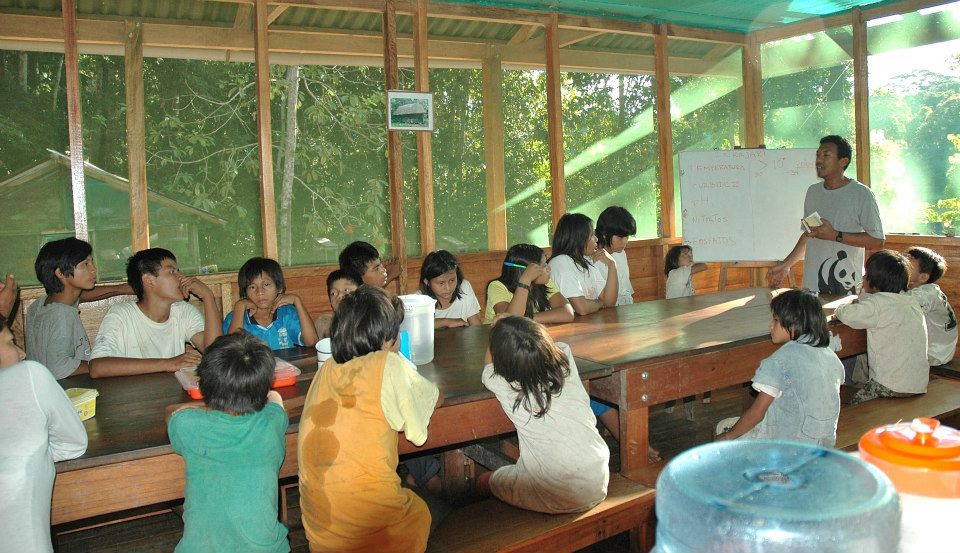Intercultural Education for Conservation
The Cocha Cashu Biological Station as a center for science, research, and knowledge has resonated for decades among the academic public. But Cocha Cashu is also at the service of conservation of Manu National Park (MNP) and surrounding communities. MNP has formalized an Environmental Education and Communication Strategy, according to guidelines set by the National Environmental Education Plan of Peru and supported by allies such as San Diego Zoo Global – Peru. MNP has also signed a tripartite agreement with the Regional Directorate of Education of Madre de Dios and the Alto Purús National Park to formalize the collaboration between conservation and education entities. In this context, education for conservation becomes a key tool in building the link between scientific knowledge and the traditional knowledge of local communities.

The Cocha Cashu Intercultural Environmental Education Program is based on mutual understanding, respect for life, and the development of critical thinking based on the natural curiosity of young people of school age. Its purpose is to strengthen the educational processes of local communities inside and outside Manu National Park to form a citizenship with environmental awareness, scientific interest, and participative in the conservation of natural resources.
Our main strategy to achieve this goal is the educational visit to the Station. It is aimed at top students of 5th and 6th grades of Primary and 1st, 2nd and 4th grades of Secondary of schools inside and outside (buffer zone) MNP. They spend 2 days and 3 nights at the Station, just as researchers do. For these visits we have designed a learning program based on two fundamental principles:
- That understanding and value of the rainforest ecosystem is built from the scientific and traditional perspectives.
- That participation of all the members of the community, whether young or adult, is important for a sustainable management of natural resources.
For more information about the upcoming activities of our program or to learn about the requirements to participate in these educational visits, please contact Roxana Arauco Aliaga.
